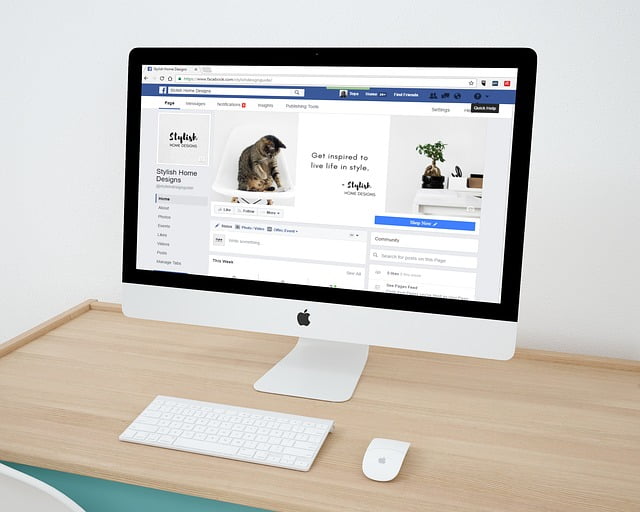Ranking your site on google can create a consistent revenue stream for your local business if done correctly.
Some businesses benefit the most from social media marketing. Instagram and targeted Facebook advertisements can provide huge boons for companies that need good leads, fast. Certain niches will flourish with this lead generation technique, and it is perfectly legitimate.
A bankable, well-researched domain can go a long way, but you’ll find that some of the best options aren’t available on run-of-the-mill providers like GoDaddy. If you’re stuck, use a reputable platform like Saw.com to find ready-to-go domains. If you are providing real value to your clients and you have a website that is SEO-compliant, you can likely count on Google rewarding you with a high search ranking for years to come.
Why bother ranking? Organic search traffic through google search is completely free. Plus, targeting specific keywords can funnel searchers to your site who are searching keywords with buyer-intent, meaning that they are ready to spend money! Naturally, you want to be one of the first sites these searchers see.
Don’t waste any more time. Here are 3 ways to get started ranking your local business fast!
Keyword Research
Use keyword research tools to find what people in your area are searching for. Look for broad but niche-specific keywords initially to see where the search trends in your area are headed, and then narrow your search by further targeting smaller and smaller geographic locations.
You want to target less competitive keywords to get your foot in the door. Less competitive keywords are keywords that have lower search volume, less authoritative domains to compete with for top spots, and inexpensive cost per clicks (CPC) per advertisement.
What does all this mean? You could (and maybe should) read an entire book on the power of keyword research, but here is what you need to know to start. You can easily establish “trust” with Google by ranking highly for less competitive keywords, which makes it easier to rank for more competitive keywords down the line.
More competitive keywords are obviously harder to get, and this is because they yield more conversions. They tend to be keyword searches with really explicit buyer intent. A good example of a keyword with strong buyer intent is “best price on product X”.
A less competitive keyword to target initially is “product X vs product Y” or “how to fix problem Z”. You can see why these searches are less competitive. The people searching them are still in the research and problem-solving phase of their buying journey.
But just because these keywords aren’t saturated with buying intent doesn’t completely eliminate all opportunities for conversion to be found with them! Get creative, answer your searcher’s questions, and provide real value to them. This helps you establish yourself as a trusted brand in consumer’s eyes, which will always pay off in the long run with your rank in Google.
It’s an upfront investment of time to find and rank for these words, but it’s worth making for a long-term and fruitful payoff that does not cost you any money beyond hosting fees and a domain.
On-Page SEO
First of all, what is “SEO?” SEO is search engine optimization. There is an endless amount content to be mined from the enigma of search engine optimization, but what you need to know is simple. Prioritize user experience and avoid spammy shortcuts.
To create a beautiful website, you only need a few (free) simple tools that can usually be found within your webhosting. Keep it sleek, and keep ads (if any!) to a minimum.
In fact, you should ask yourself whether the amount of local traffic you’ll yield will even be enough to warrant placing ads on the page. As a local business, on-page ads make you look spammy and cheap.
Make your heading tags (that’s < h 1 > without spaces, and < h 2 >, and so on) relevant keywords, but don’t spam them. Use them once or twice in-text at most, and then use them again in meta-data for search results and pictures. That’s it! Again, Google might penalize you if your site appears too spammy.
And users don’t know what SEO is, but they do know when something doesn’t “feel” right. Using keywords too much makes your writing and copy seem robotic.
Backlinks
Backlinks are a key ranking signal for Google. Backlinks refer to the number of other domains that link back to your website. The “juice” of certain websites is more powerful than others when it comes to giving backlinks, so paying a bunch of Fiverrr backlinkers to give you hundreds of spammy backlinks is a waste of time. (And Google might penalize you for it. Totally not worth it!)
High quality backlinks are one of those things you just can’t cheat. And if you want your business to rank, you need a backlink strategy that targets local keywords. This means reaching out to local business listing sites, localized review sites, newspapers, and other boons to your local presence that would be willing to link back to your site.


